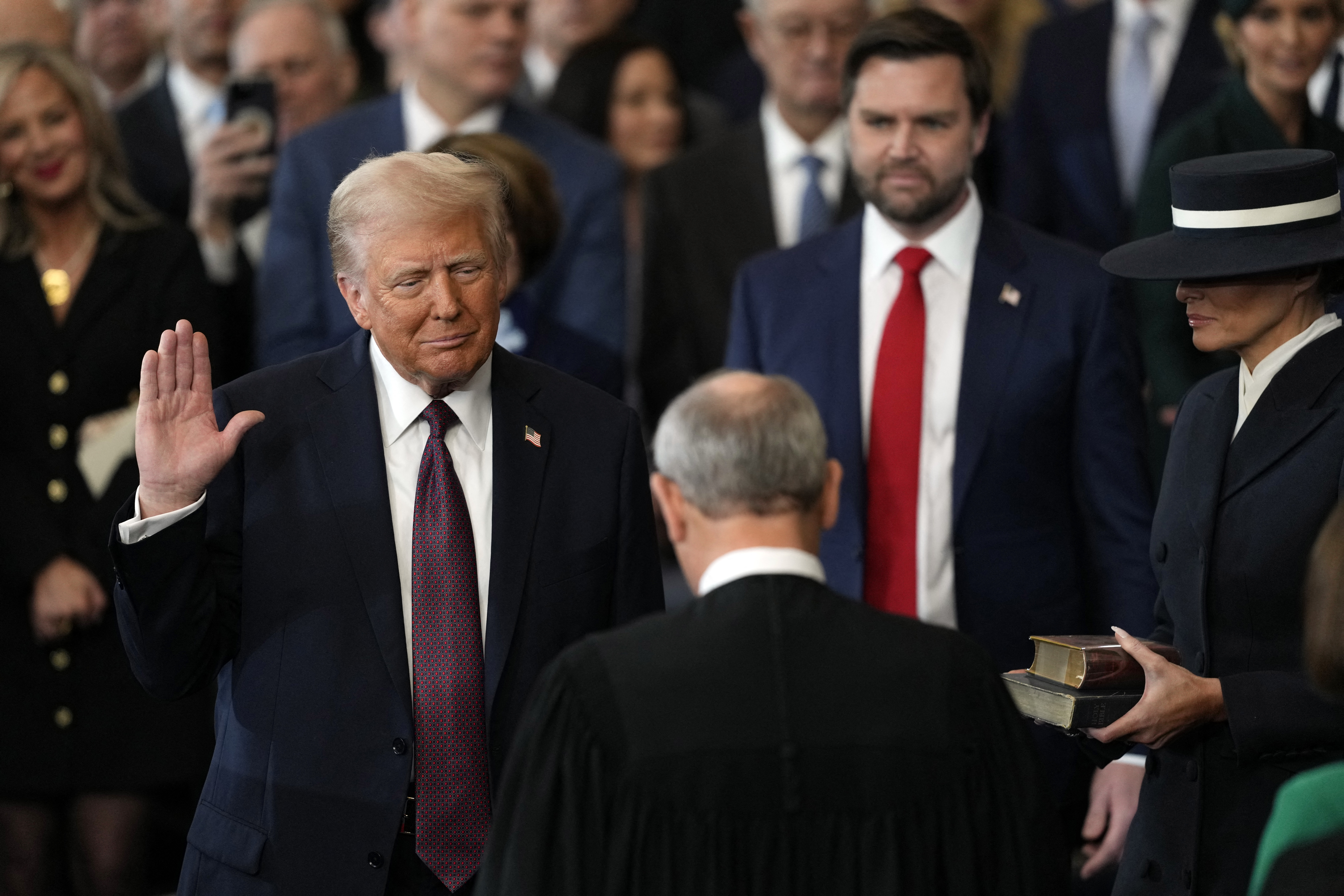Other killers snuffed out far more lives than Charles Manson did in 1969. Yet he has endured for nearly a half century as the personification of evil, even in an age in which mass shootings leave dozens dead at a time.
Manson, the hippie cult leader who died Sunday at 83, horrified America a generation ago with the way he seemed to have turned young people murderously against everything their parents cherished. That horror continued long after he had been locked up, in large part because of the demonic image crime experts say he cultivated with his bizarre behavior and searing, wild-eyed gaze.
"He had that maniacal look that was always so striking," said James Alan Fox, a criminology professor at Northeastern University in Boston. "Manson was memorable: his voice, his appearance, his mannerisms, as well as his crimes and the crazy Charlie act he put on."
Manson was convicted of orchestrating the slaughter of pregnant actress Sharon Tate and six other people over two successive August nights in Los Angeles. Prosecutors said he was trying to foment a race war, an idea he supposedly got from a misreading of the Beatles song "Helter Skelter."
He was sentenced to death, but that was commuted to life in prison after the California Supreme Court struck down the death penalty in 1972.
The murders were horrific in their brutality. Tate, a beautiful 26-year-old actress known for "Valley of the Dolls," was stabbed and hung from a rafter in her living room. The intruders scrawled "Pigs" and a misspelled "Healter Skelter" in the victims' blood.
To his long rap sheet, historians might add this: accessory to the murder of the 1960s. The Manson family's crimes, along with the deadly violence that erupted later in 1969 during a Rolling Stones concert at California's Altamont Speedway, seemed to mark the demise of the hippie ideal of peace and love.
U.S. & World
"Many people I know in Los Angeles believe that the Sixties ended abruptly on August 9, 1969," author Joan Didion wrote in her 1979 book "The White Album."
Although Manson didn't carry out the murders himself, he has managed to endure in the annals of American crime as the cult leader who persuaded middle-class kids to kill for him.
"Manson was a manipulator. In a sense, he was a puppeteer," said Jeff Guinn, author of "Manson: The Life and Times of Charles Manson." ''Manson would seem to be all kinds of things to all kinds of people, but nearly all of it was an act."
Had Manson been executed, he might barely be remembered today, Guinn said.
Instead, with a healthy assist from news coverage, he was able to capture the public's attention every few years when he got a parole hearing or in the occasional interviews he granted in which he often put on his "crazy Charlie" act, crime experts say.
"That's the most frightening thing about Manson to me. I don't believe he ever was crazy," said Guinn, who spent more than three years interviewing Manson's disciples and people who grew up with him. "Manson always knew the effect he was going for. ... In a horrible, disgusting way, Charles Manson on his terms was a success story."



